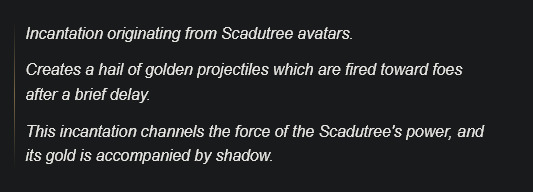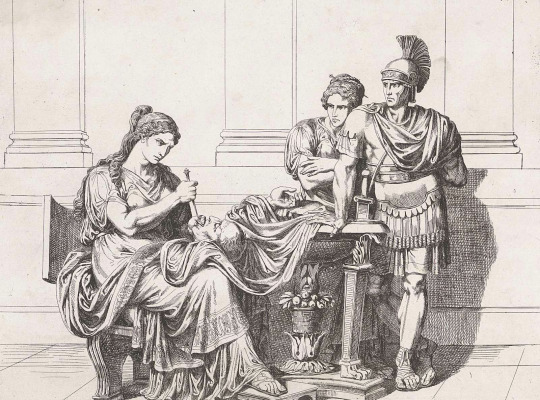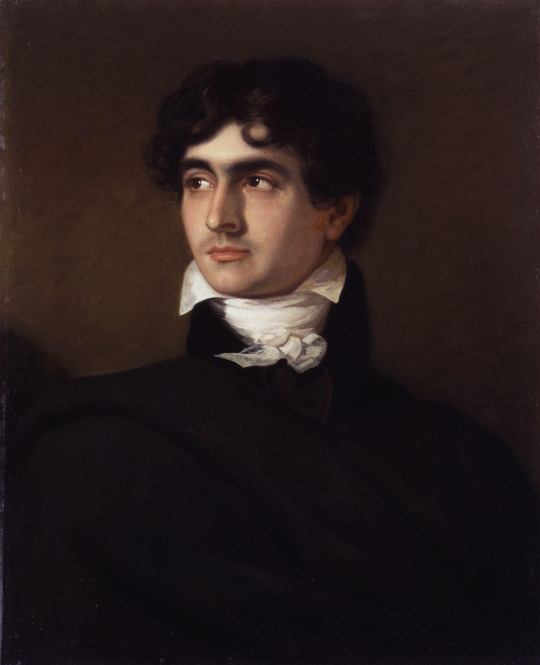#it's proscription time
Explore tagged Tumblr posts
Text
sulla : i've made a list
senate : like a to do list ?
sulla : no.
#ancient rome#ancient history#rome#roman history#tagamemnon#roman republic#sulla#lucius cornelius sulla#it's proscription time
106 notes
·
View notes
Note
Hi babess ! Could I please request a Ellie or Abby with a reader that has ADHD ? Personally have it and honestly it would be amazing to read you writing about it ❤️ DONT WORRY TAKE YOUR TIME BABES



‧₊˚ ☆ ୭ ✧˖°
ellie x reader!with adhd
a/n: EKK I HAVNT GOTTEN A REQUEST IN FOREVER! IM SO HAPPYYY. and yes yes ofc!! i have adhd too so this was fun! ( collage au, and loser!ellie ofc)
‧₊˚ ☆ ୭ ✧˖°
☆ ellie keeps you in check whenever you need it. when you cant stay focused she’ll make sure your doing what you need to, by checking in on you, or maybe taking breaks with you to do something else. she definitely has like a reward system for you too. like every 30 minutes you study you two play a match of mario cart or something. “ellliahhhh how much longer on the timer???”
“u got 10 minutes. keep going babe”
“are you suree??” ellie holds up her phone timer and you groan.
“and oh, dont worry ill kick ur but in the next round too.” ellie sarcastically added as she turned back to her own studies. you pick up the nearest pillow and chuck it at her.
“asshole!” you giggle.
☆ ellie loves listening to you ramble about the most irrelevant stuff. oh and she finds it so adorable when you lose train of thought and switches subjects. “wait what was i talking about before?”
“how water isn’t wet.. i think?”
“OH RIGHT! like it doesnt make s-“
and then she’ll just giggle at you questioning science for the sixth time today.
☆ finds you’re collection of random shit absolutely adorable.
“and whats this?”
“oh, thats my goggly eye collection!”
“and this one?”
“my rubber duck collection. duh?” you then proceeded to explain to her how every duck you collect gets its own name and backstory, THENNN tell her all their names and backstories. she try’s to keep up with all the names and relationships between the ducks & has to asks shit ton of questions.
“wait okay, so jack and millie are dating, but jack is from another pond so millie cheats on him with sarah??”
“yes exactly.”
“scandals” she giggles and fakes her shock.
☆ okay so we know ellie’s more laid back and chill, but when you’re mind starts going crazy, so does hers and she’s bouncing off the walls with you. so now all the sudden both of you are singing Katy parry, jumping on the couch. no music playing, just y’all’s off pitch voices attempting to hit those notes and failing horribly.
☆ and ellie will pick up your proscription every month so you don’t have to. you don’t have to tell her to, and honestly you’d forget yourself if she didn’t do it for you. you’ll just find the new bottle sitting on the bedside table in your dorm when you get back from your lectures.
☆ going off that a little, i think she probably has copy’s of your dorm keys & shit like that so you dont loose anything. she keeps it on her carabiner.
☆ OOUU OUUU ANNNDDD SPEAKING OF. she bought you a carabiner one year for your birthday before your freshmen year, and by the end of it you had lost it.. with all of your belongings too.! so guess its a good thing ellie keeps extras huh?
#tlou2#tlou#tlou fanfiction#girl in red#ellie tlou#ellie x fem reader#wlw#lesbian#wuh luh wuh#loser!ellie x reader#loser!ellie#MakeEllieSubAgain2025
129 notes
·
View notes
Quote
I have no doubt whatever of the future. I know there are times in the history of all reforms, when the future looks dark... I, for one, have gone through all this. I have had fifty years of it, and yet I have not lost either heart or hope... One by one, I have seen obstacles removed, errors corrected, prejudices softened, proscriptions relinquished, and my people advancing in all the elements that make up the sum of general welfare.
Frederick Douglass, "The Race Problem (1890)"
61 notes
·
View notes
Text
Danton getting warned about his upcoming arrest compilation

One day I told Danton: ”Your carelessness surprises me, I understand nothing of your apathy. Don’t you see Robespierre is conspiring to lose you? Won’t you do anything to prevent it?” ”If I thought that he has so much as thought about it, [Danton replied], I would eat his entrails!” Five or six days later, this man so terrible allowed himself to be arrested like a child and slaughtered like a lamb. Mémoires sur la Convention et le Directoire (1827) by Antoine-Clair Thibaudeau, page 60.
One morning Panis entered [Danton’s] office and found him warming himself by the fire and playing with his nephew, who was still a child. Here, read your proscription and mine! [he said]. And he presents him with a draft of an arrest warrant, written by a member of the government committees. Danton, having read it, replied coldly: They will not dare!... Panis, in despair, withdrew. (M. Menuel, this nephew of Danton, told me about this meeting. Panis had also told it to a few people who confirmed it to me). Histoire de la Révolution française: 1789-1796 (1851) by Nicolas Villiaumé, page 188.
The day before the arrest of Danton and Camille Desmoulins, he (Rousselin de Saint-Albin) ran panting to both of them several times, he engaged them, begged them to be on guard at a time when Robespierre and Billaud were plotting their downfall. But Danton thought he was too strong to listen to a warning that would have saved him. “They will not dare,” he said; then, looking at himself in a mirror:“Let us not fear anything, children that you are! See my head, doesn't it sit well on my shoulders? And why would they want to kill me? What's the point? Among some friends who were present at this interview, one said: ”There are many proscribed deputies who fortunately escaped. Dulaure, Doulcet, Louvet retired to Switzerland. What prevents you from absenting yourself for at least some time?” Danton replied: “What does it mean to absent yourself? Isn’t that emigrating? Do we take our homeland with the sole of our shoe?” Camille shared this opinion. Alas! It was blind security. ”I want,” he said, as he repeated going to the scaffold, ”I want to share the fate of Danton, whatever it may be.” Œuvres de Camille Desmoulins (1874) by Jules Claretie, volume 2, page 393. Claretie claims this anecdote originates from the mouth of Desmoulins’ mother-in-law.
The two committees signed arrest warrants against Danton, Desmoulins, Philippeaux and Lacroix for the following night. In the morning, Marat's sister, having learned about it through the indiscretion of an employee of the Committee of Public Safety, who had heard a few words, ran to warn Danton. As he had already left for the Assembly, she went there and called out for him. “Mount the rostrum,” she said to him. ”You have no time to lose, because the rumor is that you have already been arrested: the opportunity is favorable: Tallien presides: your friends are numerous, and your eloquence will crush the committees. In circumstances such as these, it is the one who attacks who wins.” ”I would have to proscribe them, replied Danton; because I know Billaud and Robespierre: they are relentless.” ”But since they want your head, take, if necessary, theirs, remember that, without you, Robespierre will very quickly be swallowed up himself. My brother told me the day before his death that he was only good at making speeches, that he understood nothing about government, and that he would lose his head at the first crisis. If he abandons you, his friend, you, the man of August 10, he is only a villain; he must perish. Collect your thoughts for an hour, and mount the rostrum: change the committees; proscribe them if necessary. "Well! Once they have me arrested, would I not be acquitted by the revolutionary tribunal and brought back in triumph, to the Convention, like the Friend of the People was? Then my enemies will be confounded and order will be restored without bloodshed.” ”Don't be fooled: last year the tribunal was impartial; now it is only the slave of the committees, which after having hindered the defense of the Girondins and that of Vincent, will prevent you from speaking.” Danton fell into reverie. “Above all, remember,” added Mademoiselle Marat, “that you must neither flee nor hide. Several patriots, in their friendship, have proposed it to you; you were even offered asylum. Danton has no other place than the rostrum. Get up there without delay; this is not just about your salvation, but of that of all of your friends, but of the salvation of the republic. Farewell." Danton shook her hand and left her, promising to not lose time. Histoire de la Révolution française: 1789-1796 (1851) by Nicolas Villiaumé, page 279. Villiaumé had gotten in contact with Albertine Marat before her death, so it’s most likely she herself this anecdote originates from.
”Oh! If I had known that they would arrest me,” cried Lacroix [at the Luxembourg prison]. ”I knew it,” Danton replied, people came and warned me, and I couldn’t believe it.” ”Trois mémoires de la collection de Nougatet” cited in Histoire parlementaire de la Révolution Française, volume 32, page 210.
Danton, placed in a cell next to Westermann [in the Conciergerie], didn’t stop talking, less to be heard by Westermann than by us. […] Here are some phrases I retained: […] ”I knew I would get arrested.” Mémoires d’un detenu pour servir à l’histoire de la tyrannie de Robespierre(1795) by Honoré Riouffe, page 88.
#georges danton#frev#french revolution#frev compilation#albertine marat#robespierre#jesus did you WANT to die georges???#or was he just convinced there was no way he would get arrested/would 100% beat the tribunal if placed in front of it
90 notes
·
View notes
Text
Bits and pieces of the still incredibly written backstory of Elden Ring continue to poke out from the dogwater, as it were.

St. Trina, as we learn, was a specific aspect of Miquella that was made separate: In Miquella's words, St Trina was the embodiment of his 'love.' And when he abandoned St Trina, he abandoned that aspect of himself that made her.
This newly introduced example reveals to us what the nature of Radagon's exactly was, in turn.

Radagon, the 'other half' of Marika in the exact same way that St Trina had been for Miquella, we learn here, had *himself* been a specific singular aspect of Marika's emotions or feelings.
With St Trina having been made out of Miquella's 'love.'
You wonder, too, what Radagon should have been made from.
What aspect of herself did Marika separate into her second person, as called by her the "Loyal Dog of the Golden Order"? We know Radagon was created prior to the creation of the Golden Order itself, since he was involved in the invasion of Liurnia.
So at the same time as Marika was married to Godfrey, begetting Godwyn and Mogh and Morgott. Radagon was married to Renalla, begetting Rykard and Radahn and raising the potential successor of Marika--the Empyrean Ranni. He was given a massive amount of responsibility, the seeming crux of the Liurnian-Leyndell alliance that ended the Liurnian Wars that Marika's empire was losing, and he by every account was completely dedicated and successful; even weakening the strength of the Carian royal family by reducing their practicing of astrology.
All yet, when push came to shove: After Godwyn was assassinated and Marika sought to destroy the Elden Ring. It was Radagon who dropped everything he had and stepped in to stop her.
"Proudly" as his Golden Order Greatsword says,

Radagon divorced his first wife, married his 'original self,' begettedthe Twin Prodigies Miquella and Malenia as two more potential successors to Queen Marika, set up the brutal inquisition and censorship of the Age of Radagon headed by his own son Rykard, and was even involved with the very the development of Golden Order fundamentalism!

Radagon did so much fucking stuff! He was so damn proactive! So what exactly must he have been!?
That Marika initially separated from herself? And who went on to try and stop her very own plans when they turned against the wishes of the Greater Will??
This conflicting 'half' of her original person! That nonetheless was all this strongly willed on his own!?
What part of Marika COULD Radagon have originally been!?!?!?
And it's awesome. It's really really well-designed writing.
Frankly, even, it's genius. It's not anything revolutionary in terms of narrative devices or anything like that, but it's really elegant. It's really meaningful and concise, and it's really cool!!!
A lot of Elden Ring's base game is, or now maybe--was. (It having been the basis of my entire show on YouTube.)
But the actual story, instead of solely the backstory, of the DLC, unfortunately, is not!
You ever seen a boss item whose entire description was literally entirely the game just fucking QUOTING ITSELF?
Hyetta at Frenzied Flame Proscription: "Become their lord. Take their torment, despair. Their affliction. Every sin, every curse. And melt it all away. As the Lord of Chaos."
Ghost outside Church of Inhibition in Liurnia: "Ahh, Lord Vyke, it seems that you were no lord, after all."
Midras's Flame of Frenzy, from killing Midras, Lord of Frenzied Flame:

Or! Better yet, ANOTHER boss spell, whose entire description is dedicated to literally just acknowledging its fucking colour!!
Land of Shadows, from killing the Scadutree Avatar:

I definitely sure wish I still hadn't!!
In fact, I don't think the level of vacuousness from Shadow of the Erdtree's descriptions has ever been seen before!
Not even in Dark Souls 3!!
AUGH
#tlgtw ooc#erwset#elden ring#elden ring lore#shadow of the erdtree spoilers#shadow of the erdtree#queen marika#radagon of the golden order#miquella the unalloyed#st trina#Outright actually literally 0 meaningful information provided in either of these two items#each of them the 1 out of only 2 rewards available for beating a major boss.#these are also just two of the worse examples of some of the most meaningless fucking item description I've literally ever read#I could not fucking believe it when I finally beat these bosses at the very end of the DLC's completion. And that that was it.#Heck on earth#Why couldn't they have just delayed it
152 notes
·
View notes
Text
Writing Notes: Ethnocentrism & Cultural Relativism

ETHNOCENTRISM
The tendency to look at the world primarily from the perspective of one’s own culture.
Part of ethnocentrism is the belief that one’s own race, ethnic or cultural group is the most important or that some or all aspects of its culture are superior to those of other groups. Some people will simply call it cultural ignorance.
Often leads to incorrect assumptions about others’ behavior based on your own norms, values, and beliefs.
Example: In extreme cases, a group of individuals may see another culture as wrong or immoral and because of this may try to convert, sometimes forcibly, the group to their own ways of living.
War and genocide could be the devastating result if a group is unwilling to change their ways of living or cultural practices.
Ethnocentrism may not, in some circumstances, be avoidable.
We often have involuntary reactions toward another person or culture’s practices or beliefs but these reactions do not have to result in horrible events such as genocide or war.
In order to avoid conflict over culture practices and beliefs, we must all try to be more culturally relative.
CULTURAL RELATIVISM
The principle of regarding and valuing the practices of a culture from the point of view of that culture and to avoid making hasty judgments.
Cultural relativism tries to counter ethnocentrism by promoting the understanding of cultural practices that are unfamiliar to other cultures such as eating insects, genocides or genital cutting.
Example: Consider the common practice of same-sex friends in India walking in public while holding hands. This is a common behavior and a sign of connectedness between two people. In England, by contrast, holding hands is largely limited to romantically involved couples, and often suggests a sexual relationship. These are simply two different ways of understanding the meaning of holding hands.
Someone who does not take a relativistic view might be tempted to see their own understanding of this behavior as superior and, perhaps, the foreign practice as being immoral.
CULTURAL RELATIVISM: Problems
Despite the fact that cultural relativism promotes the appreciation for cultural differences, it can also be problematic.
At its most extreme, cultural relativism leaves no room for criticism of other cultures, even if certain cultural practices are horrific or harmful.
Many practices have drawn criticism over the years.
Example 1: In Madagascar, the famahidana funeral tradition includes bringing bodies out from tombs once every seven years, wrapping them in cloth, and dancing with them. Some people view this practice disrespectful to the body of the deceased person.
Example 2: Today, a debate rages about the ritual cutting of genitals of girls in several Middle Eastern and African cultures. To a lesser extent, this same debate arises around the circumcision of baby boys in Western hospitals.
When considering harmful cultural traditions, it can be patronizing to use cultural relativism as an excuse for avoiding debate.
To assume that people from other cultures are neither mature enough nor responsible enough to consider criticism from the outside is demeaning.
CROSS-CULTURAL RELATIONSHIP
The idea that people from different cultures can have relationships that acknowledge, respect and begin to understand each other’s diverse lives.
People with different backgrounds can help each other see possibilities that they never thought were there because of limitations, or cultural proscriptions, posed by their own traditions.
Becoming aware of these new possibilities will ultimately change the people who are exposed to the new ideas.
This cross-cultural relationship provides hope that new opportunities will be discovered, but at the same time it is threatening. The threat is that once the relationship occurs, one can no longer claim that any single culture is the absolute truth.
Source ⚜ Writing Notes & References
#writing notes#culture#psychology#writeblr#dark academia#writing reference#spilled ink#studyblr#light academia#literature#writers on tumblr#writing prompt#poetry#poets on tumblr#writing inspo#writing ideas#writing inspiration#creative writing#writing resources
111 notes
·
View notes
Text
i mentioned it in the replies of one of my posts, but i love how tied morgott and mohg are in soul despite their differences. their great runes occupying the same tower is one thing, but the possibilities that they work together in some capacity despite having such fundamental differences in beliefs is so interesting.
there's nothing that explicitly states that they're collaborating on anything, but i feel you can get real far if you let your mind wander. their shared occupation of the shunning grounds, morgott and mohg's matching shackles, morgott's sword having that bloodflame slice ability, the complimentary ways that they fight with morgott's speed and mohg's strength, mohg's illusion guarding the frenzied flame proscription with morgott's seal hidden behind him... there's so much to work with there!
the last part is what interests me the most, tbh. something peculiar about this setup is how morgott's illusions work; when he summons margit in stormveil and out in altus, gold shimmers around him while a symbol bearing the sigil of the crucible appears on the ground beneath margit. when he summons godfrey's spirit, the same symbol and golden hue appears on him. but with mohg, no such gold appears, nor any symbol. he merely materialises out of thin air.
this is interesting because of the fact that this means morgott didn't summon him. not only because he doesn't show up with the symbol or gold, but also because when you kill morgott, his margit illusions in stormveil and altus also disappear if you don't kill them before morgott. this doesn't happen with mohg in the sewers, who can be fought before you even get to godfrey, even if you kill mohg in his palace first before any of them. but why is that?
i personally believe that it's because mohg's illusion is not one born from the same magic that morgott uses for his incantations. i know, shocking, the golden order fanboy and the formless mother fanboy use different spells, but it does serve to explain why mohg's illusion stays even when the man himself was slain first. it sets their magic apart very clearly and decisively, but also grants more insight into their collaboration.
mainly because i think that morgott and mohg working together on this can fit into 2 different possible reasonings behind the nature of their relationship. the first being that this is a begrudging truce built off of mutual respect and fear of the frenzied flame, and that they don't agree on much else beyond that and are estranged otherwise. the second being that they still work together in some capacity and still hold even the slightest bit of affection for each other, and guardianship over the frenzied flame using the magic they are best at (illusions and seals) is testament to that.
both are plenty compelling, though i find myself more drawn to the 2nd reason. i wonder if there was a time before miquella where mohg was establishing his dynasty and his brother, a fanatic of the golden order, turned a blind eye to his actions out of love. its probable that morgott and mohg never publicly acknowledged their familial connection, since neither varre nor ansbach make any mention of mohg having a brother, nor does anyone (barring shaneheight) know that morgott is actually an omen. it could be that, when mohg left the sewers to establish his dynasty, morgott let the matter lie and the two went their separate ways rather amicably, if a little bitter.
as per usual, this was just a huge ramble with no direction. just musings pretty much. i love thinking about these guys a lot.
#elden ring#elden ring rambles#omenboys#morgott the omen king#margit the fell omen#morgott#mohg lord of blood#mohg
142 notes
·
View notes
Note
hello! I was wondering are there any etiquette rules for andorians that would confuse humans and vice versa? Thank you.
Hello, Skygirl! Sorry for taking so long to answer - still a bit broken, so typing is a bit uncomfortable!
To answer this question, first I'm going to break down what etiquette actually is. I'm going to keep it pretty simple, because literal tomes have been written about the nuances of etiquette in various cultures, and I'd rather not rehash the last five hundred years of social standards across the world.
Etiquette is defined in the Oxford dictionary as "the customary code of polite behavior in society or among members of a particular profession or group." This code is usually determined through a combination of majority opinion, traditional values, religious proscriptions, and social hierarchies.
From there, etiquette can be further divided into categories of politeness and manners, and business etiquette.
Politeness and manners basically come down to self-regulation to follow a social code of conduct by following normative behavioural standards and being, overall, pleasant company. A person has good or bad manners depending on whether or not they can adhere to these social standards, and an individual may have good or bad adherence to different types of manners relating to hygiene, courtesy, and social norms all at the same time. So, hypothetically, you could have a perfectly polite person with terrible hygiene and a weird disregard for others' personal space. Or, conversely, someone with impeccable hygiene, middling social awareness, and absolutely terrible manners. Literally any combination is possible, and one can see this just by looking at the folks who surround us every day.
Now, business etiquette is a little different in that it's much more goal-oriented and involves the necessary adherence to ethics and norms required to successfully facilitate transactions and generate profit. Business ethics can vary quite a bit between corporate bodies, and it's difficult to standardize a universal code of conduct because of the unique nuances each culture has regarding business, which usually results in a kind of culture shock for all of the parties involved.
A common example is the practice of napping at work, which in Japan is often seen as a sign of something called "inemuri" - earnestness and dedication to one's work, resulting in one working so hard that one is exhausted and falls asleep at their post. In North America, however, napping at work (when not on your break, and sometimes not even then) is a good way to get written up and fired. The two approaches are somewhat incompatible, as you can clearly see.
So, looking at all of the above, I think we can pretty confidently say that there are definitely going to be some things Andorians and Humans trip over when dealing with each other - after all, it still happens regularly within Human cultures, and we at least have the benefit of at least being the same species!
So! What would some common sticking points be?
In terms of politeness and manners, I could easily see Humans stumbling over the highly ritualized customs of the Andorians. Andorians society has developed over time to be very rigid in structure and social norms in every day interactions as a means of preventing internal conflict, which often gives Humans the impression that Andorians are cold and unfriendly. In truth, Andorians are only cool and distant with strangers, but their demeanour and a lack of expressiveness in their faces (due to chitin) makes them seem stoic and really quite unapproachable to the uninitiated even well past the initial introductions and early acquaintanceship.
Additionally, while Humans and Andorians largely agree on standards of hygiene and personal grooming there are a number of differences in how some of these things are treated within the different cultures.
For example, Andorians would sit and soak in mineral hot springs all day, if they could reasonably get away with it, to the point of conducting family meetings and minor business while soaking - unlike Humans, Andorians do not easily overheat and faint, nor does prolonged exposure to high heat bother them overly much. This habit of languishing in the water for hours on end is something which Humans tend to find excessive and, when it comes to meetings, inappropriate. Additionally, Andorians are fastidious about bathing prior to soaking, and forgoing that step is considered not only rude but incredibly unsanitary - a step which some Humans skip, or roll into a single event with soaking, to the horror of the Andorians. Adding further complications to such things, the Human tendency in certain cultures to view all nudity as inherently sexual baffles Andorians, who frequently soak together in familial, bonded, or mixed groups and see no issue with such things.
Similarly, grooming each other is often a sign of trust and affection amongst Humans and therefore not something we allow strangers to do outside of specific circumstances (barber/salon, wedding prep, etc.) As a very social and physical species, Andorians have no such compunctions about contact with others ranging from family to work colleagues and acquaintances. Andorians are very touchy and mean absolutely nothing by it most of the time, but they don't always remember that Humans do things a bit differently and have different ideas of what is and is not appropriate.
Cosmetics as part of personal hygiene and grooming can also be a point of confusion, as Andorians are fond of using brightly pigmented colours around their eyes and mouths across both sexes, even in professional environments. Humans, meanwhile, primarily market cosmetics at women, using products ranging from subtle to neon, and such a strongly gendered association would be considered bizarre on Andoria to say the least.
In terms of personal conduct in social situations, Humans can find Andorian customs to be extremely rigid and difficult to navigate without prior research. Andorians use a number of visual and verbal cues to indicate who they are, what Clan they belong to, and their station in society that are lost on most Humans who haven't taken the time to prep in advance. An Andorian can tell at a glance what most Humans need to play 20 Questions to find out. In fact, the very act of inquiring about these details inevitably irritates the Andorian being interrogated for information which, to their mind, should be quite obvious.
On the opposite side of this dynamic, Humans are infuriatingly vague to Andorians at times. Unless a uniform is involved, it is remarkably difficult to discern whether one is speaking to a social subordinate or superior when conversing with a Human and often times lower ranking and higher ranking Humans conduct themselves in the same manner.
And in terms of business etiquette, Andorians are very formal during business dealings and are not generally receptive to friendly overtures, which they regard as deeply suspicious - and small talk falls under friendly overtures.
When Andorians enter into a business meeting, they are there to reach an agreement, exchange goods and/or services, and leave. They do not want to be friends, they do not want to hear about your children or have you ask about theirs, and if they wanted your opinion on the weather or decor they would have asked for it. Honestly, when dealing with Andorians on mercantile matters, it is best to stick to business topics only until such a time as it is concluded. Discussing business over dinner, as some Humans are wont to do, just doesn't fly with Andorians; dinner is dinner, business is business, and never the two shall meet.
In the workplace, Andorians find they their work days and deadline schedules are not fully compatible with Human ones; Andorians work on a 36 hour day, requiring very little sleep at a time, and Humans function on a 24 hour day. Andorians receiving deadlines from Humans, such as "I need this done by the end of the day" often have to double and triple check if that means today-today or tomorrow-today. And Humans never seem to be available to cover shifts, since they always seem to be sleeping! It's very frustrating for both sides.
Hope this helps! If you have anymore questions, do let me know!
#emigre by indignantlemur#star trek#andorian#andorians#headcanon#Andorian etiquette#Andorian vs Human etiquette
34 notes
·
View notes
Note
you mentioned you specialize in roman violence. can you rec any good works on the subject, especially during the late antique period? how much (or little) time/writing did latin authors spend on the question of the necessity/morality/glory of violence, especially when bound up with empire and borders? did rhetoric around domestic violence evolve?
It's obviously a massive topic, so it's difficult to know where to begin! For looking at violence in Late Antiquity, I highly recommend the work of Maijastina Kahlos as a starting point - most of her scholarship deals with tensions between religious communities in the Roman Empire in Late Antiquity, and I've found it extremely clear and illuminating. For Late Antique slavery, I'd look at Jennifer Trimble's work, especially "The Zoninus Collar and the Archaeology of Roman Slavery" (2016, JSTOR link here). On the intersections of violence and the legal system, I'd recommend Sarah Bond's 2014 article "Altering Infamy: Status, Violence, and Civic Exclusion in Late Antiquity" (JSTOR link here) as well as Julia Hillner's 2015 book Prison, Punishment and Penance in Late Antiquity. Amy Richlin is essential reading on Roman violence in general, and I'd highly highly recommend her piece "Cicero's Head" in Constructions of the Classical Body (ed. James Porter, 1999) if you have access to an academic library and can get a hold of it; it's explicitly framed as a Jewish, post-Holocaust reflection on the violence of the Roman proscriptions and civil wars and has been profoundly influential on my own thinking.
In general, Imperial-era Latin authors spend a lot of time thinking about the necessity/morality/glory of violence, to the point that I'd say violence is the key theme in Imperial Latin literature. It's often bound up with Stoic philosophy (in the 1st-2nd c. CE; Seneca's De Ira is a key text - you might take a look at sections 3.18-19 on torture under Caligula), and given the bias of our sources which skew toward the elite/senatorial-class perspective, it can be harder to track down texts that explicitly make the link between violence and Roman imperium. One famous example is the speech of Calgacus in Tacitus' Agricola 29-32 (link to a translation here), which purports to be the speech of a Celtic general in Britain rousing his troops to battle against the Romans in the 80s CE. Given that speeches in Roman historiography are generally regarded as being compositions by the historian, it's important to ask why exactly Tacitus of all people gives a prominent place to a scathing critique of Roman imperium - there are lots of ideas on this and few definitive answers, but it's a startling passage to say the least.
Imperial Latin epic poetry (e.g. Lucan's Bellum Civile; Statius' Thebaid) is well known for being graphically violent in the extreme (as in brutal torture, dismemberment, and one infamous instance of brain-eating in Thebaid 8), and there's a lot of work on how and why violence becomes highly aestheticized for Imperial Latin poets. There's also the genre of Roman declamation (difficult to explain, but essentially something like mock trial cases that were used for rhetorical education and showmanship), which frequently explores extremely violent scenarios involving torture, kin-killing, etc. Most scholars these days tend to read declamation as a space where (elite, male) Romans worked out and interrogated various cultural anxieties and taboos. Because of this, you get some of the strongest condemnations of violence found anywhere in Latin literature in the declamatory corpus, but it's difficult to extrapolate from that because again it's something like mock trial and rhetorical showmanship that does not necessarily map on to real-life Roman attitudes.
I've barely scratched the surface and there's a lot more I could say but I'll cut myself off here - I might be able to offer more specific recs if you're interested in e.g. violence as spectacle, aesthetics and artistic representations of violence, etc.
165 notes
·
View notes
Note
Top 5 underappreciated historical figures!
Thanks for the ask! This one was super fun, but also super difficult to answer. I've purposefully avoided mentioning the ladies of the French Revolution, since I have another question specifically about them lined up.
With that being said, in no particular order:
Fulvia
Anyone in the classics circle likely knows much more about her than I do, but I'm so glad I've discovered her through Tumblr! All of the things I've learned about her so far have been so interesting. It's incredible to see how much political (and military) power a Roman woman was able to yield despite living in a deeply patriarchal society.
(also, the part of me that loves drama really appreciates the story about her stabbing Cicero's tongue with hairpins after the proscriptions and Octavian's atrocious poem about her)

2. Émilie du Châtelet
Also hardly a surprise for anyone who's been following me for a while. Again, the fact that I've only relatively recently found out that there was a female mathematician and physicist in the fist half of the 18th century with such significant contributions to the field makes me almost feel as if I've been lied to.
She is special to me both because she was incredibly smart (she was able to understand Newton like few other people in her time and she spoke so many languages!) but there's also something about her writing that makes her feel deeply human and relatable. I've read some of her texts, and not only are they written in a beautiful prose but they're also incredibly moving. Her view on how to achieve happiness in life is one of the best I've ever came across, and her arguments for the education of women always make me feel so emotional...
...when she says that it was only after she realised that the circle of (male) French intellectuals accepted her among themselves and treated her as equal that she realised she too "might be a thinking creature"... I don't know, there's something about it that always gets to me.

Okay, time to introduce some male historical figures as well! This one is a residue from the time when I was really into the American Revolution.
3. Peter Stephen Du Ponceau
He was probably the only one in Baron von Steuben's original group that was able to speak decent English when they first arrived in the US to join the revolutionary war, which a) makes him quite important b) is kind of funny to think about.
But what I especially like about him is that he was a talented linguist who seemed to have genuine respect for other cultures, which let's face it, was quite rare in his times. While taking part in the American Revolutionary War, he recorded and studied the languages of Native American People. How cool is that?
(He was also potentially queer and I do have a soft spot for queer history)

Okay, guess should bring up someone interesting from Czech history as well. I fully confess that my own country's history is not necessarily my favourite area of study, but for her, I'll always make an exception:
4. Milena Jesenská
Probably most well known as Kafka's (kind of?) girlfriend/pen pal, but there is so much more to her story!
She was a writer and a journalist during the first half of the 20th century. She was really talented and soon made a reputation for herself, which let's face it, wasn't an easy thing to do for women in her time.
After Czechia became occupied by Nazi Germany, she joined the resistance movement and helped Jewish families to escape. She was later transported to a concentration camp, where she worked as a nurse and was said to have been "a moral support for other prisoners". She unfortunately died there when she was only 47. Still, what a life!

5. John Polidori
He's not necessarily my number one favourite person but I'd argue he is one of the most unappreciated figures. Vampires in fiction are massively popular but he rarely gets credited as one of its first authors. (Also the theory that Lord Ruthven, the charismatic, immoral aristocrat featured in The Vampyre is heavily based off on Lord Byron is not only entirely plausible but also quite funny).
Whenever I read something about the Geneva Squad, I always end up feeling kind of bad for him. As a foreigner, someone who was of a lower social status and - since he technically came along as Byron's personal physician - a paid employee, it just seems to me like he was never actually fully part of the group. Maybe I'm wrong, but to me, he felt kind of like a perpetual outsider. Lord Byron also got the credit for writing The Vampyre that should have gone to Polidori.
He was of course far from a perfect saint, with his drug and gambling addiction, but I still can't help but feel that he deserved better.

#thanks for the ask!#ask#send asks✨#sorry about taking so long I'll try to get to the other asks as soon as I'm able!#history#women's history#queer history#fulvia#roman republic#ancient rome#émilie du châtelet#age of enlightenment#1700s#18th century#milena jesenská#franz kafka#20th century#czech history#john polidori#geneva squad#lord byron#literature#romantic literature#1800s#du ponceau#american revolution#amrev
61 notes
·
View notes
Note
back to the idea of what if Daemon had twin daughters in the Vale instead of sons, I just so happen to have the perfect casting idea for them, hear me out:
Freya Allan (for both)
she plays (or played I’m still confused about it) Ciri on the Witcher, and she has the perfect Valyrian hair and a quick edit of her eyes to change them to purple is easy enough. but the real kicker about this is that in the new Planet of the Apes movie, she plays a character with dark hair and bright blue eyes that almost look grey at times.
naturally, this led to me making these edits:


the names would be interesting in this case. I assume Jon would go to Jeyne and Rhaegar might opt for Rhaena, unless you have another idea. the ages would also change, i assume they’d be thirteen going on fourteen, they could even be twelve going thirteen if you stretch it but they simultaneously work as late teens as well. the fun bit of HOTD is the wide range of actors having to play ages all over the place so it doesn’t matter much in this regard. Daemon and Criston look the exact same age and it’s been twenty years.
again, i have no idea where i’m going with this, but i know i wanted to get it out of my head so please enjoy. and if you have any possible Jon and Rhaegar fancasts, either as kids or teenagers please let me know, i’d love to edit them to fit their look
Confession: I initially skipped straight to the photos and went "huh, impressive, those two actresses look pretty similar, nice find to portray twins" then read the rest of your ask and was like OH WELL THAT EXPLAINS THINGS. 😅 It's actually impressive that hair/makeup/lighting can make that much of a difference!
That's a lovely cast! I'm terrible at fancasting, so whenever someone asks me I'm usually like *mumble* idk *mumble*. (I also like to leave things open so that folks can make their own without me laying down anything proscriptive.)
Names are fun, I hadn't thought about what their female equivalents would be. Jeyne and Eleyna for their Vale names, perhaps? For their Targaryen names, I think Rhaegar honors his mother with some Rhae name, perhaps even Rhaella or Rhaelle. Jon's probably less stubborn about Jeyne, since it's not a name he has any prior attachment to, but I don't know which Targaryen name he'd gravitate towards. Visenya, perhaps, for her prowess? We know Daemon would approve, given that it's a name he and Rhaenyra used in canon. Otherwise maybe something in Dany's honor.
Now I'm imagining them going with Rhaenys and Visenya, and Otto and/or Viserys being like "clearly one of them is meant for Aegon" to Daemon's consternation.
And ah yes, the Hollywood propensity for casting twenty-something (and sometimes thirty-something) actors for teens!
39 notes
·
View notes
Text
The Ides of March

By George Edward Robertson b. 1864 - Art UK - https://artuk.org/discover/artworks/mark-antonys-oration-over-the-body-of-caesar-56885
The old Roman months were divided into between 23-31 days, depending on the month and the year. Typically, the month began with a nonas (or nones), which was eight days, or nine days the way the Romans counted, the first one counting up to the nonas (days 1-7), the days leading up to the idus (or ides), then the final two counting up to the kalendas (or kalends), or first day of the month. The nundinae, between the first and second nonas, which were a type of weekend, were market days. Those market days had to be announced 3 weeks (between 17-24 days) before on the Idus of the month previous, or there would be no market day that month. The kalends was determined by the sighting of the first sliver of the moon after the new moon and the nonas happening on the day of the first quarter, and the ides on the full moon.
In 46 BCE, Julius Caesar reformed the calendar, ending the previous chaos of years that were between 355-378 days long. Ten days were added to the short 'regular' year with an extra day added every four years, bringing the year to 365 days as of 45 BCE. He left intact the system of the pre-existing Roman months.

By Ángel M. Felicísimo from Mérida, España - Retrato de Julio César, Public Domain, https://commons.wikimedia.org/w/index.php?curid=91281949
Gaius Julius Caesar was born on 12 July 100 BCE to a patrician family, gens Julia, claiming descent from Venus by his ancestor Julus, the son of Aeneas, who founded Alba Longa in central Italy. Despite claims that have been made, it is exceedingly unlikely that he was born via Caesarian section because at that time in Italy, it would have caused the death of the mother and his mother lived for decades after his birth. At the time of his birth, Caesar's family wasn't very prominent in Roman politics.
In his youth, Caesar was appointed as flamen Dialis, or a high priest of Jupiter, which normally placed a taboo on having a political career. Such an appointment shows that his family did not expect much of him. He was married to the daughter of Lucius Cornelius Cinna, Cornelia. In 84 BCE, his father died suddenly. In 82 BCE, Caesar was ordered to abdicate and divorce by Sulla, who'd won the civil war named after him. Caesar refused, thereby questioning Sulla's legitimacy. In retribution, Sulla might have put Caesar on the proscription list and Caesar went into hiding. They reached a compromise where Caesar would abdicate but keep his wife and 'chattels'.
He then traveled to Bithynia as a member of staff to the governor of Asia, where he eared the mocking epithet 'the Queen of Bithynia' for rumored relations with King Nicomedes IV. He served as part of the Siege of Mytilene, where he earned the civic crown, a military honor given to those who save the lives of their fellow citizens, and that ignited Caesar's hunger for more accolades. He returned home after the death of Sulla in 78 BCE. He attacked some of Sulla's cohorts, only semi-succeeding in one case against a less well connected senator, charging them with profiteering.
He left for Rhodes after failing to learn rhetoric with Apollonius Molon. It was on the trip there that he was kidnapped by pirates. Though legend says that his ransom was 50 talents and that he then executed the pirates, both are embellishments and the pirates were more likely enslaved.
In 73 BCE, Caesar was co-opted to take his dead relatives place in the pontifaces, the most illustrious college of priests. It marked him as well-accepted and having great future prospects for a political career. While he was on his way back to Rome, he was elected a military tribune, the rank between legate and centurion. No evidence currently exists that Caesar saw military action during his term of service, though he continued to agitate against any of Sulla's effects on the government.
He was sent to serve under Gaius Antistius Vetus for his quaestorship in 69 BCE, which also gave him a permanent seat on the Senate. Before he could leave, his aunt Julia died and shortly after his wife Cornilia died, leaving Caesar's only legitimate child, Julia as a new born. Caesar remarried to Sulla's granddaughter Pompeia.
Caesar spent the next period of his life supporting Pompey, including on the restoration of tribunician rights, the lex Gabinia, which gave Pompey command against piracy within 50 miles of the Roman-held lands, and the lex Manilia, which made Pompey command in the war against the Mithridates. In 65 BCE, he served as cururle aedile and staged games for his Aunt Julia, earning more popular support.
In 63 BCE, he became praetor and pontifex maximus, likely due to bribery and fawning, though without charges laid against him, leading to the belief that it wasn't enough to tip him over the edge. He used his praetorship, he used a lot of his time working against those he deemed enemies, such as Catulus.
After his praetorship, Caesar was sent to Hispania Ulterior, the part of southern Spain leaning to the Strait of Gibraltar, to be governor. He was broke at this time and needed more than just his salary and beyond the normal extortion of the locals, so he seized northwestern Spain, seizing enough to pay his debts.
In 60 BCE, Caesar was up for election to the consulship, one of two chief elected officials, so he was forced to chose between being in place for the election by giving up command or to have a triumph march for his victories in Hispania and give up the election. He chose the consulship.
He served with Marcus Calpurnius Bibulus, though his former enemies now supporters Pompey and Crasus formed an alliance known as the 'First Triumvirate'. His first act as consul in 60 BCE was to make the Senate and assemblies minutes to the public, showing support for Senate accountability. He then set up a way for willing sellers to sell their land for veterans, especially for those who served under Pompey, and the urban poor. His next act was to reduce Crassus' arrears taxes. He continued to be both radical and curry favors with other during his term, which caused a rift with Bibulus, who was a conservative, though it generally made him popular. Pompey married Julia, his daughter, during this time as well.
After his year as consul, he wrote the ten volume Commentaries from 58-52 BCE, which was and still is considered a literary masterwork. It was both biographical of his own campaigns and supportive of the ongoing Gallic wars in which he was fighting. Part of his success was that the Gauls were not a united group so he was able to exploit their divisions. Until 54 BCE, Caesar was paying for these campaigns himself, out of the plunder of his armies' victories.
During Ceasar's time in Gaul, Roman politics were in chaos with many groups trying to hold the sway over politics, with groups trying to undo Ceasar's reforms, especially his land reform, and those who upheld them. During this time, as well, there was a weakening of the Triumvirate's agreement, but it was strengthened again when Pompey and Crassus wanted their own military honors.
Beginning in 52 BCE, Caesar and Pompey's trust broke down. Cato and the conservatives wanted to have Pompey talk Caesar into going back to Rome even though he was still battling the Gauls, without honors and a consulship. While the order to come back to Rome was vetoed by the Senate, Cato and Bibulus did manage to talk Pompey to their side against Caesar. Fears of civil war began to grow in Rome, so Caesar and his opponents began building up their armies in Gaul and Northern Italy. On 1 December 50 BCE, an formal disarmament of both sides was overwhelmingly passed by the Senate, but with the support of only one consul, it was not passed.
In 49 BCE, it was rumored that Caesar was going to march on Rome and Pompey was ordered to defend Rome against him. Caesar offered to disarm if Pompey did as well, which was rejected by Senate. Caesar began his march on Rome, caught between exile and civil war. He wanted to secure his second consulship and a triumph. He believed that his opponents would refuse to ratify his election if they even allowed him to run. He felt this would also suppress the liberty of the Roman people. So, around the 10th or 11th of January 49 BCE, Caesar crossed the Rubicon, the river that defined the northern border of Italy.
After this, Pompey and many senators fled south, Pompey going as far as to flee to Greece, since Caesar's army was superior to what they had the support of. Facing little opposition, Caesar kept his army around Rome for two weeks. He seized the treasury and left Lepidus in charge of Italy before moving his armies to Spain to defeat Pompey's armies there. Returning to Rome in the autumn, he had Lepidus declare him dictator, a magistrate who was meant to serve to resolve a specific issue, to conduct elections. He held the position for eleven days. He and Publius Servillius Isauricus won the elections.
After that, Caesar left Italy to go to Greece to stop Pompey's preparations to march on Italy against Caesar. Caesar set siege to Pompey at Dyrrhachium, but Pompey was able to escape, fleeing to southern Greece with Caesar following him until they engaged in battle at Pharsalus on 9 August 48 BCE. Pompey then fled to Egypt, and Cato fled to Africa. Cicero and Marcus Junius Brutus begged pardon.

By Jean-Léon Gérôme - http://www.mezzo-mondo.com/arts/mm/orientalist/european/gerome/index_b.html Archived 2017-06-19 at the Wayback Machine.
Pompey was killed in Egypt three days before Caesar arrived on 2 October 48 BCE. With the Etesian winds, strong north winds, keeping him in Egypt, Caesar sought to arbitrate the Egyptian civil war between Ptolemy XIII Theos Phiopater and Cleopatra, his sister/wife/co-regent queen. In late October, he was appointed in absentia as dictator for a full year. He also began an affair with Cleopatra. With the defeat of Ptolemy at the Battle of the Nile, Cleopatra was installed as ruler of Egypt, celebrating with a triumphal procession along the Nile. In June or July, Caesar left Egypt, with Cleopatra giving birth to Caesarion in June.
On his way back from Egypt, he heard that King Pharnaces was attempting to reclaim his father's lands from Rome. Caesar fought him in Zela, defeating him, where Caesar wrote 'veni vidi vici' (I came, I saw I conquered), downplaying Pompey's victories in the area. He then quickly turned to Italy.
While Caesar was absent from Rome, Mark Antony was magister equitum, his lieutenant as dictator, in charge, though he was rather unpopular. After agitation for debt relief by Publius Cornelius Dolabella got out of hand, Antony was removed from his position. He then suppressed riots by force, making him more unpopular. When Caesar returned to Italy, he demoted Antony and was able to pacify the mutineers without further violence, and then oversaw elections in 47 BCE, as well as confiscating and selling his enemies' properties. He went to Africa next, seeking to defeat Cato's forces, which they did, but Cato committed suicide rather than put himself at Caesar's mercy. Many of those who were against Caesar also committed suicide shortly afterwards as well. He narrowly won the battle at Munda on 17 March 45 BCE, effectively ending the war.
In February 44 BCE, Caesar was appointed dictator perpetuo after being appointed dictator for a year for the previous three years. He was also given many honors, including the 'praefectus moribus' (prefect of morals), allowing him to revise the Senate rolls through the census, and the power of war and peace. He was the first living mortal to have his portrait on Roman coins, as well as rights to royal dress and a golden chair in Senate. He also had the month of Quintillis renamed Julius (July) in his honor. All of these gave him the trappings of royalty, which led to later resentment.
While Caesar was given such sweeping powers, he did not make sweeping changes to Roman society. His major reforms were to the calendar, replacing the previous lunisolar calendar with the solar Julian calendar, and to increase the numbers of senators from 600 to 900. He also founded colonies to help alleviate overcrowding in Rome and Italy to help reduce unrest.
Beginning in January of 44 BCE, there were efforts to call Caesar 'rex' (king), were shut down by the two tribunes. Caesar accused the tribunes of infringing on his honor and had them removed from office and Senate. This angered the people, seeming to go against the reason Caesar had pursued civil war. Just before 15 February 44 BCE, he took the dictatorship for life, claiming the title more permanently than the ten years that had been granted him and showing he had no intention of restoring the republic.
While he rejected the diadem, the symbol of kingship, when offered by Mark Antony during Lupercalia, exactly why is uncertain. It might have been due to lack of supporters in the crowd, or it might have been performative, to deny he was a king.
The plans for assassination began in the summer of 45 BCE, with attempts to recruit Mark Antony at this time. While Antony declined to join in, he also didn't warn Caesar. By February 44 BCE, there were about 60 conspirators, and it was obvious that support of Caesar was on the wane, with some of his former supporters joining the conspiracy. Many of the conspirators were also those who could have run for consul from 43-41 BCE, likely disappointed by Caesar's sham elections, which would have affected the following elections.
Brutus, who claimed descent from Lucius Junius Brutus, who drove out the kings of Rome, freeing it from tyranny, was the leader of the conspiracy. In 45 BCE, graffiti and public comments were made insinuating Caesar was a tyrant, implying that Brutus should free them. Some of the underlying issues included Caesar's debt reforms being too advantageous to lenders, the use of force to suppress protests for debt relief, reduction of grain dole, a social safety net, and his abolition of open elections.

By Jean-Léon Gérôme - Walters Art Museum: Home page Info about artwork.
While there was some news leaked about the conspiracy, Caesar didn't take any precautions, rejecting a bodyguard escort. The date of 15 March 44 BCE was decided on since Caesar was going to leave on campaign three days later, forcing the conspirator's hand. There are several stories about the exact day, from Caesar almost didn't attend or was warned about the plot, whether he died silently or said 'kai su teknon' (you too, child) to Brutus' presence. He was stabbed at least 23 times and died at once.
The assassins were seized immediately and were coldly recieved by the population. Lepidus moved troops into the city, and the Senate House was burned. Mark Antony was summoned to the senate and managed to work a compromise in which the conspirators wouldn't be punished and those who were not appointed by Caesar would keep their office. This compromise was an effort to prevent further cracks in the government and diminishing the goals of the conspirators. Regardless, Caesar's death precipitated the end of the Roman Republic.
15 notes
·
View notes
Note
Apart from C-A Prieur, did anyone else in the CSP remain a friend with Lazare Carnot after Thermidor?
I think @aedesluminis and @sieclesetcieux are better suited to answer this than I am, I’m generally pretty unfamiliar with the Office CPS dynamics (I honestly don’t even know which of the members were friends of Carnot beforethermidor). But I’ve at least managed to dig out the following:
In volume 3 of his memoirs, Barère writes that he, following getting relieved of his legislative duties, wrote two or three letters to Carnot expressing some ideas on European politics and the power of the Directory, but that Carnot expressed no interest towards neither the letters or the man Barère had sent to hand them over. ”From this time my correspondence with the Director Carnot ceased; he either could, or would, do nothing for me, he forgot me altogether, and himself disappeared soon afterwards from this disunited, ill-matched, and utterly incapable Directory.”
Barère also writes that he in 1800, after having returned to Paris, had dinner with Fouché and Lamarque, ending with another encounter with Carnot:
After dinner Lamarque told me that he wished to be reconciled to Carnot. I thought that the circumstances were favourable for the reconciliation of true patriots, as misfortune ought to unite all shades of opinion. I went to Carnot, and introduced to him my friend Lamarque, who had defended me during my proscription from the tribune of the Five Hundred. "No doubt," replied Carnot ironically, "but he was the president of that council when I was transported as a member of the Directory." I perceived somewhat too late that there are some men whose memory is too good, and we parted rather disconcerted at this misunderstanding.
Later that year, Barère claims Carnot walked in on him and Napoleon having a conversation, and tried to help Barère obtain a position in the new regime:
The conversation had reached this point when the Minister of War, Carnot, arrived with his portfolio to work with the First Consul. To give Carnot his due, he seemed very pleased to see me in close conversation with Bonaparte. He thought when he saw us tete-a-tete in the audience chamber that I was about to be appointed to some important office. In a few moments he said to the First Consul: "General, can you not usefully employ the talents of Citizen Barère?" The First Consul, who certainly had no desire to do so, and who had only offered me a miserable editorship, was silent, either because he did not choose to be catechised by one of his ministers, or because he had no favourable reply to make. I saw his embarrassment, and I replied to Carnot: "The First Consul would like to make me a bard to celebrate the glorious exploits of his warriors; but the age of Ossian has passed." This reply appeared to displease the First Consul, and I took my leave, considering myself very fortunate to have escaped being requisitioned as a journalist.
Collot d’Herbois mentioned Carnot once in his defence written 1795, attesting that the latter was hardworking. However, it doesn’t exactly tell us anything regarding if the two had stayed in touch or not:
I hastily ate a frugal meal every day in the vicinity of the committee. Carnot was forced to do the same, as was Prieur (de la Cote-d'Or.) They know of my assiduousness; only theirs and that of Lindet could surpass it.
As for Saint-André, I could find nothing when searching for ”Carnot” within the 1848 work Jean-Bon Saint-André, sa vie et ses écrits by Michel Nicolas. The same thing when searching for him Billuad-Varennes — mémoires et correspondance (1893)
That leaves us with Lindet and Prieur de la Marne, both of whom have left so little written material behind that I can’t say anything for the moment… There might be something in Notes et souvenirs inédits de Prieur de la Marne, but I don’t have access to those…
31 notes
·
View notes
Text
video ideas for the McLaren pr team
’cause the flow been dry since the proscription of unboxed
why not satisfy one of their sponsor while at it? Get these boys each a McLaren LEGO set and do a competition of who can assemble it the fastest, bits of chatting here and there and boom! Nice long chill video c:
we’ve seen how competitive Lando and Oscar can be in the inverted goggles video, so maybe it could be fun to bring this kind of energy back? Stick ‘em on a paddle court and let’s have a lil showdown! Now of course it’d be nice to get the Williams vs McLaren match, but interteam content does tend to be rare so I wouldn’t put my money on it
maybe it’s time to change it up a little, we’ve seen them a lot in competitive contexts. Why not some cooperative challenge this time? Seeing them struggle in an escape room would be hilarious, and it’d show a nice united front to the public
now, now, the boys are racing drivers. Some track actions is always nice, so I propose a karting video. Another one, don’t look at me like that I just love these
playing with food is a staple of video challenges, and with mister Oscar Pastry on your team it’d be a shame to not capitalize on this play on words. Baking contest, no instructions, whoever makes the worst concoction has to taste his mess (plus possible affiliation with their Optimum Nutrition sponsor c;)
SUMMER. GAMES. That video was fire, stamp of approval, keep going sweetie. Tweak the games so that it isn’t a repeat and we’re onto a winner here
for a team with an history as rich as McLaren they haven’t been quizzing their drivers much on their f1 knowledge… even outside of McLaren. Chill bla bla video of their favourite moments of the sport, wins, overtakes, radios?
they’ve been getting a lot of friendship bracelets on stage recently, so why not capitalize on this fan interaction and let ‘em make some to distribute to the fans at the next race?
uno with Stella, Brown, whoever. I want to see them being the little menaces that they are, terrorize the McLaren team, stick up a +4 in each other’s face, unleash the sassiness :o
’look at you’ ‘look at you’ ‘look at us’ alright then. You wanna fawn over each other? Then with their partnerships with clothing brands surely the pr team could find a way of letting them choose silly outfits for each other, little modeling session, um?
anyway, thank you for coming to my ted talk, yadi yada, if you want to add some ideas you are very welcome to put them in the comments :D
#lando norris#oscar piastri#landoscar#mclaren pr team#please wake up#we need to be fed#the video feed been empty for SO LONG#please…
50 notes
·
View notes
Text
ok re: this image

the reason for the proscription against long hair for dudes in the new testament comes from greco-roman medicine of the time believing that it caused impotency
it was believed that everyone made semen in their brains, and that semen produced hair on the body as it flowed throughout
women were encouraged to shave their pubic and body hair, and to allow their head hair to grow long so that semen would be "sucked upwards" and better flow towards the womb
men's testicles were seen as "weights" to pull their semen downwards, but if they had long hair it would overpower their balls and they'd be impotent
women's long hair was seen very much as the equivalent to men's testicles, which is also why the early church asked women to veil their hair (it would be like a dude going balls out in the congregation lol)
jesus is depicted with long hair so often due to a misunderstanding of some early christians between the words "nazarene" and "nazirite." if jesus had taken a nazirite vow, he wouldn't be allowed to cut his hair. he, however, did not take a nazirite vow as evidenced by the fact he drank wine (a nazirite couldn't drink either). his long hair in artwork was not seen as an issue anyway due to his celibacy
but anyway. this is why historical context is important. and it's very wild to me that ancient greek medical understandings still impact western body hair norms
8 notes
·
View notes
Text
Mini post on Babeuf’s opinion of Lazare Carnot at the time of his final arrest, which led to his execution.


When Babeuf was arrested, he harbored an unrelenting hatred for Grisel, just like Buonarroti, referring to him as a "traitor," "infamous," and "Judas-Grisel," as well as the Minister of Police, Cochon. However, strangely, Carnot, who had been the spearhead of the repression against the Babouvists is spared from Babeuf's criticism as a whole (even if Babeuf reserves some severe judgments for him) , is contrasted with Barras, who had reservations about the arrest of the Babouvists (one of the few qualities of Barras that I acknowledge). Indeed, Gracchus Babeuf accuses Lazare Carnot in these terms: "How do you conceive that he could have done this for the Sans-Culottes, a piece so filled with art, wit, and logic? What would you say if it seemed to you that it was not Grisel or Minister Cochon, but rather Director Carnot, who conceived these ingenious methods of luring the most ardent Republicans into horrible traps in order to be in a position to sacrifice them, and then use that as a means to scare off all those who, with their religions, would take advantage of it to pronounce their general and definitive proscription and bury the Republic?"
Babeuf even implies that some documents seized from his home might have been tampered with while they were "in Carnot’s hands." But, overall, Babeuf spares Carnot during his final trial, which would lead to his death. In his general defense, he invokes a "Saint Bartholomew’s Day of patriots" being prepared by the royalists, and the proscription of republican values. Babeuf never directly mentions Carnot’s particular responsibility.
An interesting fact: after the affair at the Grenelle camp and the condemnation of the Babouvists (especially since Babeuf endured a particularly grueling imprisonment, being transferred in cages set up on carts, while his wife, eight months pregnant, decided to walk alongside him to offer support and attempt to free him), public opinion was stirred by this case. Afterward, according to Mazauric, Carnot, though conservative on many issues, slowed down the repressive zeal of Merlin. Merlin who will be one of the main targets of the star opponents of the Directory including Felix Le Peletier, survivor of the Babouvists and Victor Bach who addressed him in these terms "Yes, guilty as you may be, Reubell, Merlin, and all of you legislators , directors, or ministers who may be their accomplishments! I do not wish for your death, but rather that you be condemned to sweep the streets of Paris, dressed in those grand costumes that gave you the pride, greed, and cruelty of the kings you sought to imitate".
17 notes
·
View notes